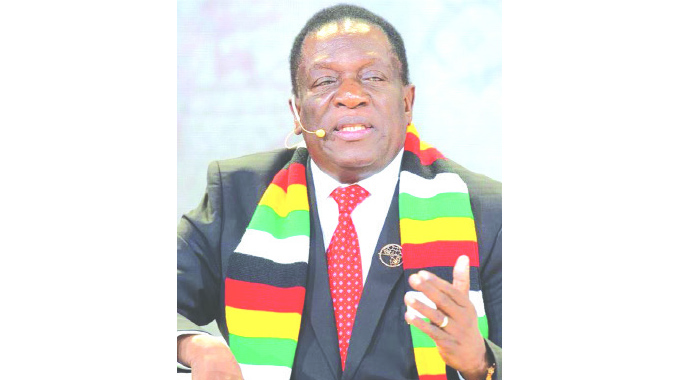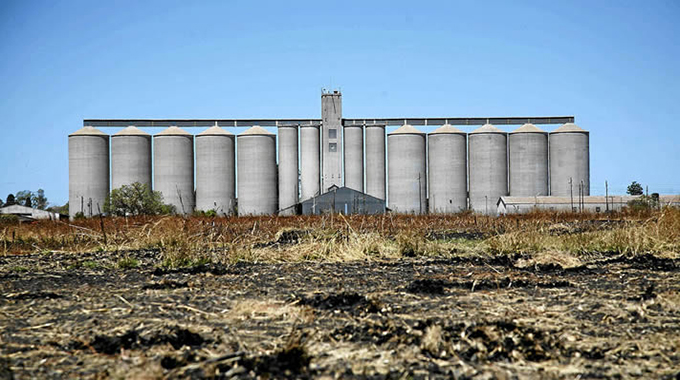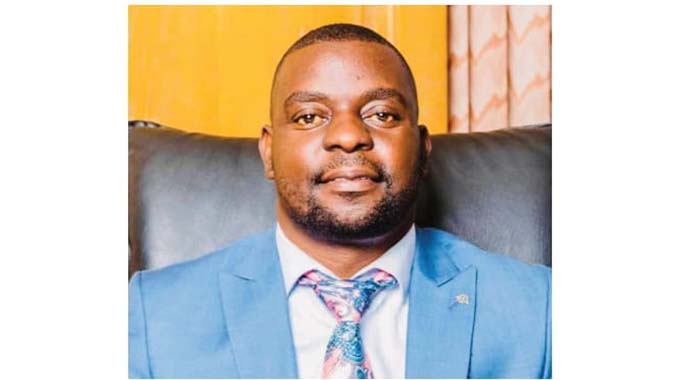COMMENT: Rural industrialisation must produce raw materials

COMMUNITIES are now enjoying the fruits of initiatives by the Second Republic to improve livelihoods in all parts of the country guided by President Mnangagwa’s philosophy that no one and no place will be left behind in the nation’s developmental trajectory.
Yesterday we carried a story on Mpofu villagers in Lupane who are reaping huge benefits from being part of the Bubi-Lupane Irrigation Scheme.
President Mnangagwa launched the Bubi-Lupane Irrigation Scheme late last year and it was identified as a pilot project for an integrated business model to be replicated across all provinces as part of the National Food Security Strategy.

The Agricultural Rural Development Authority (Arda)
The Agricultural Rural Development Authority (Arda) manages the scheme on behalf of the villagers.
Villagers participating in the irrigation scheme are paid wages and when the crops are harvested and sold, they are then paid dividends.
The partnership has meant that Lupane is now contributing to national food security.
After a bumper harvest of wheat last year, participating villagers got a windfall of $250 000 each as dividend after the wheat was sold to the Grain Marketing Board (GMB).

Grain Marketing Board (GMB)
Some villagers used the money to transform their homes from mud huts to modern houses built with bricks and nicely roofed.
Some bought livestock to boost their herds among many other improvements in their lives.
What is clear is that the lives of the Mpofu villagers are transforming thanks to Government interventions which proves that President Mnangagwa is walking the talk on changing the lives of the people for the better.
Presently, the irrigation scheme is in the process of harvesting a bumper maize crop planted on 180 hectares during the 2021/22 farming season.
The success of the scheme has seen it double the number of participants from 45 when it started it 2020 to 90 with more villagers expected to join as it expands.
The villagers have testified to the impact of the irrigation scheme with Mrs Sinikiwe Moyo saying:
“I was among the people who started this irrigation scheme.
Working here has transformed my home.
I’m moving from pole and dagga huts to a modern homestead,” she said.
Following the wheat harvest last year, I managed to buy sofas, a cupboard and a wardrobe after being paid $250 000.
We have a good maize crop this season and we are looking forward to be paid a lot of money.”
Ms Josephine Mpala, a self-confessed doubting Thomas, joined the scheme after realising the success from the pioneer group.
“I saw many of them building modern homes and buying a lot of property after being paid hence I decided to join them,” said Mrs Mpala.
The irrigation scheme’s chairperson Mr Gerald Khumalo said:
“We never thought that anything would come out of our sandy soils in Lupane but things have changed.
“The farmers here are now enjoying good harvests because they are using proper farming methods guided by experts. We have shifted from subsistence farming to commercial farming and as such we are now contributing to national food security,” said Mr Khumalo.

The Agricultural Rural Development Authority (Arda) CEO Tinotenda Mhiko
The Agricultural Rural Development Authority (Arda) CEO Tinotenda Mhiko Arda chief executive officer Mr Tinotenda Mhiko said the scheme is contributing significantly to national food security.
“We are targeting to achieve between 810 and 880 tonnes of maize from the 180 hectares.
Farmers at this scheme are contributing to the national food security as they are not just producing for their own consumption but are selling surplus to the GMB,” said Mr Mhiko.
He said the farmers are now taking farming as a business hence many of them have transformed their lives for the better.
Mr Mhiko said the scheme was part of the Government’s Agriculture Recovery Plan strategy whose aim is to transform the agriculture sector into a US$8,2 billion industry.
He said Government’s push for rural industrialisation can only be realised when schemes such as Bubi-Lupane produce the required raw materials.
The transformation of the lives of Mpofu villagers, being part of the pilot project to be replicated across the country, raises hope for a change in fortunes for rural communities spearheaded by the Second Republic.
The tangibles are there for everyone to see.









Comments